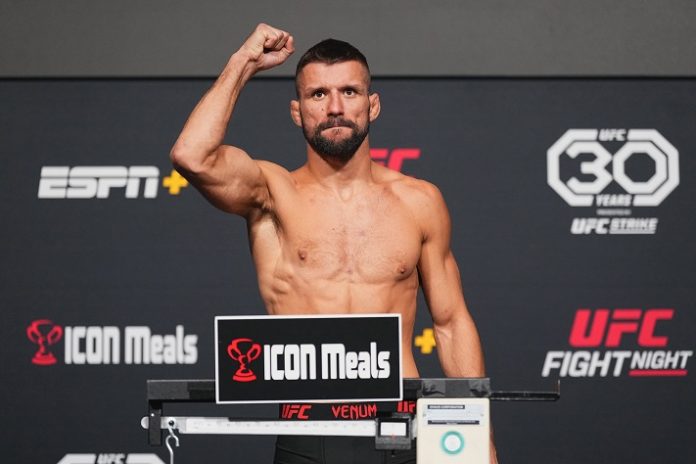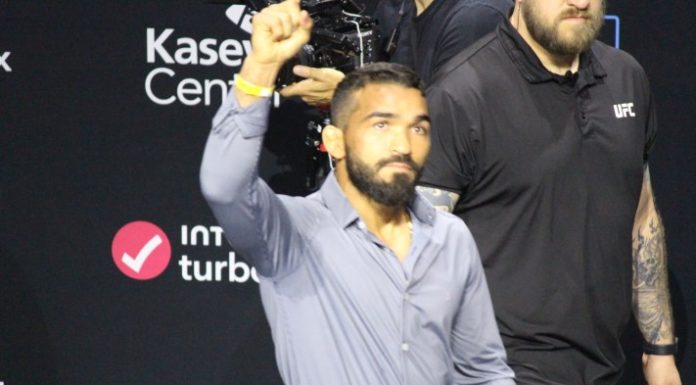
Huge news broke this past Wednesday evening: former UFC lightweight champion Charles Oliveira was out of his scheduled rematch with Islam Makhachev at UFC 294.
Just a few days prior, MMA Fighting had confirmed that Polish lightweight Mateusz Gamrot had been signed to serve as the backup for that original match-up. With the news of Oliveira’s eye injury surfacing, one can only imagine that Gamrot was relishing the idea of getting his title shot.
Only, it wasn’t to be. The UFC decided against having the back-up step in and instead opted to grant Alexander Volkanovski the rematch with Makhachev he so craved. But this leads us me to ask the question, is there any value in a fighter agreeing to be a back-up?
To clear up the role of ‘back-up’ fighter, their role specifically only seems to cover emergency fight week circumstances. Essentially, if a fighter in the main event missed weight or came down with an illness during fight week, the back-up fighter would then step in.
This is essentially a lottery ticket for the back-up fighter. Gamrot played that lottery. He lost.
It is something that has become more frequent in the UFC. In just the last year alone fighters like Colby Covington, Sergei Pavlovich and Brandon Royval have all served as title fight back-ups, and in all three instances, they weren’t needed. Not only that, but in the case of Pavlovich, it didn’t even guarantee him the next title shot in his division as Stipe Miocic was favoured over him to fight Jon Jones at UFC 295.
Similarly, Jared Cannonier served as backup for the UFC 293 main event, and it is now abundantly clear that he won’t be fighting for the title next.
Ultimately the idea of having a back-up fighter for big fights is warranted. It certainly benefits the promotion, who can salvage big cards at the 11th hour if need be. But there is seemingly little to no value in fighters agreeing to be back-ups. Back in 2018, even former middleweight champion Robert Whittaker branded the idea as ‘silly’.
Consider this: the back-up has to go through a training camp in which they likely prepare two game plans in the case of either fighter pulling out. They then also have to go through a grueling weight cut, just like all the other fighters on the card.
Yes, they are getting paid, but there’s no win bonus, no Fight of the Night or Performance bonuses for a fighter who never steps in the cage.
In this particular instance with Mateusz Gamrot, it’s not entirely surprising that the UFC opted for Volkanovski due to his name value and it being a big event for them. It’s probably the better fight, but it still doesn’t feel entirely right.
What can be done to improve the role of a ‘back-up fighter’?
Having a back-up on hand is a necessity. But for them to only be activated during Fight Week, passed over on a whim, is nonsensical. When the original fight is booked, a back-up fighter should be agreed upon at that same time. From then, if one of the originally scheduled fighters pull out from the time of booking to fight night, the back-up is activated.
Only then will there be a smidge of value in a fighter agreeing to be a back-up.




















